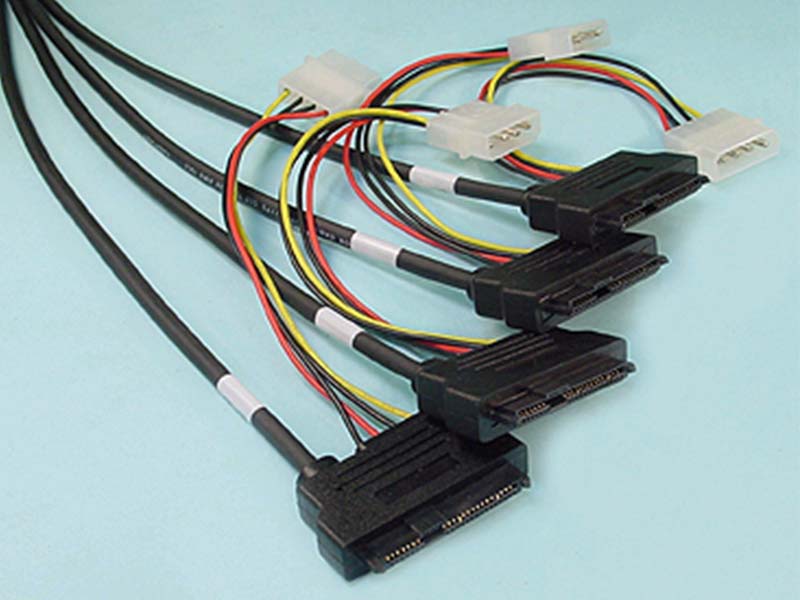Serial ATA Technology and Application
Serial ATA (SATA or Serial Advanced Technology Attachment) is a computer bus interface for connecting host bus adapters to mass storage devices such as hard disk drives and optical drives. Serial ATA was designed to replace the older parallel ATA (PATA) standard (often called by the old name IDE), offering several advantages over the older interface: reduced cable size and cost (7 conductors instead of 40), native hot swapping, faster data transfer through higher signalling rates, and more efficient transfer through an (optional) I/O queuing protocol.
SATA host-adapters and devices communicate via a high-speed serial cable over two pairs of conductors. In contrast, parallel ATA (the redesignation for the legacy ATA specifications) used a 16-bit wide data bus with many additional support and control signals, all operating at much lower frequency. To ensure backward compatibility with legacy ATA software and applications, SATA uses the same basic ATA and ATAPI command-set as legacy ATA devices.



As of 2009, SATA has replaced parallel ATA in most shipping consumer desktop and laptop computers, and is expected to eventually replace PATA in embedded applications where space and cost are important factors. SATA's market share in the desktop PC market was 99% in 2008. PATA remains widely used in industrial and embedded applications that use CompactFlash storage, though even there, the next CFast storage standard will be based on SATA.
Serial ATA industry compatibility specifications originate from The Serial ATA International Organization (aka. SATA-IO, serialata.org). The SATA-IO group collaboratively creates, reviews, ratifies, and publishes the interoperability specifications, the test cases, and plug-fests. As with many other industry compatibility standards, the SATA content ownership is transferred to other industry bodies: primarily the INCITS T13subcommittee ATA, the INCITS T10 subcommittee (SCSI); a subgroup of T10 responsible for Serial Attached SCSI (SAS). The complete specification from SATA-IO. The remainder of this article will try to use the terminology and specifications of SATA-IO.



Hotplug
The Serial ATA Spec includes logic for SATA device hotplugging. Devices and motherboards that meet the interoperability specification are capable of hot plugging.
Advanced Host Controller Interface
Advanced Host Controller Interface (AHCI) is an open host controller interface published and used by Intel, which has become a de facto standard. It allows the use of advanced features of SATA such as hotplug and native command queuing (NCQ). If AHCI is not enabled by the motherboard and chipset, SATA controllers typically operate in "IDE emulation" mode, which does not allow features of devices to be accessed if the ATA/IDE standard does not support them.
Windows device drivers that are labeled as SATA are often running in IDE emulation mode unless they explicitly state that they are AHCI mode, in RAID mode, or a mode provided by a proprietary driver and command set that was designed to allow access to SATA's advanced features before AHCI became popular. Modern versions of Microsoft Windows, Mac OS X, FreeBSD, Linux with version 2.6.19 onward, as well as Solaris and OpenSolaris, include support for AHCI, but older OSs such as Windows XP do not. Even in those instances, a proprietary driver may have been created for a specific chipset, such as Intel's.
